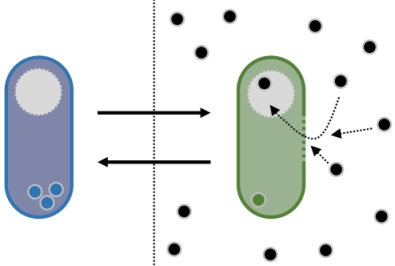Follow all the CRCA’s news !
1 2 3 4 9The CRCA-CBI hosted the 31st french IUSSI congress!
From 28 to 30 August, the CRCA-CBI hosted the 31st conference of the French section of the International Union for the Study of Social Insects.
Social tolerance can be restored in aggressive spiders after molting.
In spiders, social isolation is responsible for the development of aggressive behaviour. In a study published in the Journal of Experimental Biology, Emilie Mauduit and Raphael Jeanson show that social tolerance can be restored if spiders are exposed to siblings after moulting.
In the blob, aging could be reversible!
In a new study, Audrey Dussutour, Angèle Rolland, Emilie Pasquier, Paul Malvezin, Cassandra Craig and Mathilde Dumas (CRCA-CBI) studied how the behavior of the slime mold Physarum Polycephalum, a unicellular organism, varies over the lifetime of individuals, and they showed that aging in the blob might be partially reversible.
Creation of a new team at the CRCA !
The CRCA is pleased to announce the creation of a new team by the winners of the CBI 2022 "Emergence" call : "BeeAntCE" co-directed by Mathieu Lihoreau and Antoine Wystrach.
Resource sharing is sufficient for the emergence of division of labour
Division of labour is seen in many social organisms. A study based on a theoretical model and published in the journal Nature Communications shows that resource sharing is sufficient for the emergence of the division of labour within a group of initially identical individuals.
Moving in a single file
Sheep in the field alternate graphing phases when they are static or moving slowly and phases when they are moving, at a higher speed, in most cases collectively in a single file. We investigate the rules that could explain these intermittent file movements.






